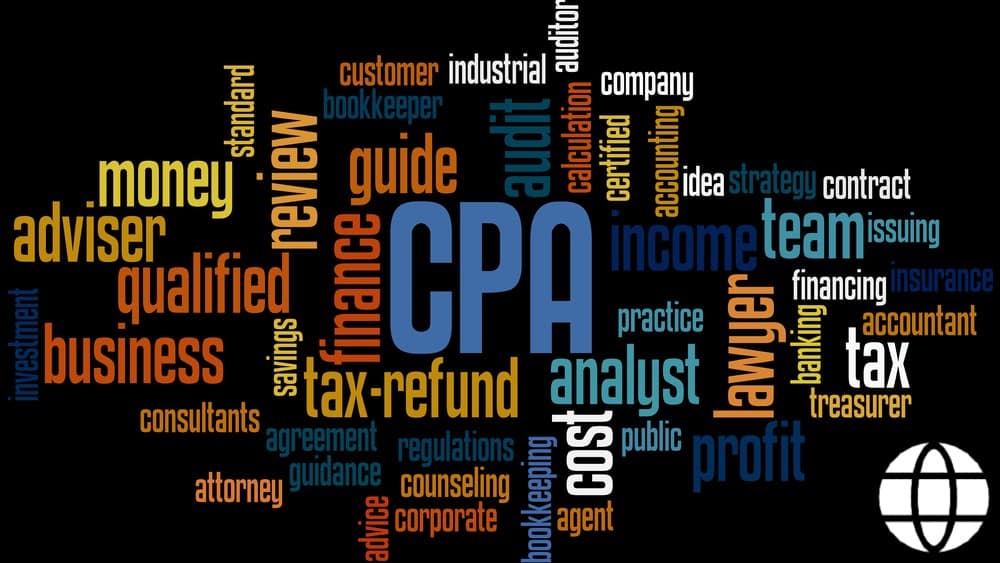Hello there, welcome to our comprehensive financial planning guide on how to become a CFP.
After reading this article, you will know what becoming a Certified Financial Planner entails and all about licensing and certification you need to achieve the CFP designation.
In this guide, we will look into:
Without further delay, let’s begin!
Becoming A Financial Planner
With the great demand for certified financial planners in the market and the impressive salaries that they earn, this is a field that you would want to be in for a long while.
The importance of Certified Financial Planners is unmistakable because they help both individuals, clients, and organizations make and realize long-term financial plans.
According to the Bureau of Labor Statistics reports, financial planners earned an impressive annual salary of $89,330 in 2020.

To earn this much, you must complete the required education and earn the necessary certifications to work as a professional financial planner.
So how do you become a certified financial planner and enjoy this thriving career?
Here are the crucial steps you must follow to attain this.
Step 1: Obtain A Bachelor’s Degree
Though some professional certifications don’t require a bachelor’s degree, the CFP does.
The financial planner education requirements includes possession of a bachelor’s degree.
Some employers will always prioritize applicants with bachelor’s degrees in areas such as finance, business, accounting, while most will not indicate a specific degree course as part of the requirements.
But classes that include taxes, risk management, and investments will equip students to become resourceful professionals in the financial advisor field.
A bachelor’s degree is in finance is often a four-year course.
In furtherance to having a degree, there are specific educational requirements from the CFP Borad.
Required CFP education
After obtaining your bachelor’s degree from an accredited university, you will need to do the following to meet the certification requirements further.
You must complete the CFP Board- registered education program, which has various options.
The CFP board receives notification the moment you complete your education option, and most coursework providers will do the notifying for you.
Experience requirements
After you graduate with your bachelor’s degree, you must gain experience with entry-level financial planner jobs.
Most employers need recent graduates to work under experienced financial advisors for a year or longer.
This experience will be crucial in shaping how you will relate with clients and other professionals in the financial advisor industry.
6,000 hours of professional experience in financial planning process or related field or 4,000 hours of apprenticeship is part of the additional requirements needed.
After meeting all educational and experience requirements, it’s time to get certified.
Step 2: Get The Required Certification In Financial Planning
There is no better way of advancing your career as a financial planner than obtaining the necessary additional credential and getting certified a a CFP.
To obtain a CFP designation, you must pass the CFP exam and agree to adhere to the professional code of ethics.

However, you must only take the CFP exam after the CFP board receives notification once you complete your education.
You will have the opportunity to take the CFP exam, which comes three times yearly.
The exam can happen in November, July, and March.
You must do the exam within 5 days, and you must physically go to the official exam locations certified by the CFP board.
Before you finish your program, you can register for the CFP exam, which will play a significant role in your CFP certification.
Remember that the CFP Board will receive notification after education completion within the deadline set for education verification.
Failure to happen leads to a $100 charge as a withdrawal fee.
You must also indicate financial planning work experience, which we discussed in the previous section.
Also, you must pass the CFP Board’s fitness standards for every candidate; to achieve this, you must adhere to ethical standards.
It is also imperative that you inform them of any criminal background or work termination history.
However, the board will carry out a background check on you.
To learn more about the ethics requirements, check out the CFP Board’s website.
Step 3: Take The CFP Certification Examination
Acing the CFP exam by obtaining the mark will no doubt be a career-defining moment for you.
You may be concerned about the CFP exam like most financial professionals.
The certified financial planner is one of the fastest-growing and in-demand professions, and you will have set yourself on the top tier of the industry professionals.
Let’s go over all you need to know before taking the exam.
The Exam Cost
First, the CFP exam has its costs.
It begins with the registration fee, which is $825.
However, this early registration fee of $725 is valid if you register six weeks earlier than the registration deadline.
There is also a latecomers charge of $925, applicable if you register late for the exam.
Late means two weeks before the date of the registration deadline.
Exam registration can be done with the CFP Board, which offers online registration after completing the program coursework.
Completion is the only way to show eligibility for the CFP exam.
You must also send the CFP Board the proof that your coursework is complete.
The CFP board sends notifications after they have confirmed your eligibility.
About the Exam
The CFP exam has 170 questions which are multiple-choice questions.
These questions gauge the level of financial planning knowledge you have and client scenarios.
The exam is in two to three-hour sessions with a 40-minute scheduled break between sessions.
Every session has two subsections where you can choose to have an unscheduled break between the exam subsections if you please.
Preparing for the Exam
When preparing for the CFP exam, you must commit yourself to studying for it.
According to the CFP Board, you should spend about 250 exam study hours.
This could be demanding, but you can draw comfort from the fact that it won’t last forever, and it is the only way to propel yourself to higher financial planning professional levels.
Time will go fast, and soon you will be sitting for the exam, acing it, and becoming a certified financial planner with a reputable financial firm.
Preparing for this exam is a process you have to study and understand and not just cram the study material.
There are many things to study, and you must have the ability to understand and apply the case studies.
You must dedicate a certain amount of study hours every day until the exam date nears.

Come up with the ideal study plan
Remember, this is like preparing for a major sports event like an athlete who needs to train every day.
Consider the board’s exam weighting when structuring your study plan.
It is advisable not to focus on the most complex and heavily tested topics.
Instead, take time and master the basics of every category before getting into in-depth studying.
After you have achieved mastery of the categories, then get deeper into them based on complexity and how best you have understood them.
This is the best way to absorb as much detail as possible.
CFP Exam Study Tips
You might be asking, can you self-study for CFP?
Yes, you can, and when you do it well and study smart, you will ace the CFP exam.
Passing the exams is something very achievable.
Here are a few tips to help you achieve this vital aspect of your career as a certified financial planner.
You can pass the CFP exam by figuring out how to use the things you learn in real-life situations
It would be best to focus on understanding what you study because that will be crucial in this exam.
20% of the exam scoring focuses on case studies that require you to analyze a potential client situation and work out the best approach.
This is why you shouldn’t memorize your study material because you will need to understand how you will best apply the knowledge you gain.
They gauge the quality of financial advice you would give in a real-life situation.
Make sure you practice as many exam questions as you can
With more practice comes more familiarity and knowledge on applying the knowledge learned.
Focus on questions that are as complex as the exam questions.
This will help you know whether you have mastered the current category or not.
Practice questions are the best form of study, and they are always available at the end of the CFC board prep chapters.
Avoid studying the night before the exam
Going through endless lists could be mentally exhausting.
It would be best to never exhaust yourself the day before the exam date.
Make sure you have enough rest and clear your mind.
Think positive thoughts and imagine passing your exams; you studied hard after all.
It is natural to be a little nervous about passing exams, but you will ace the exam and earn your CFP Certification with a positive attitude.
Step 4: Get Licensed
As a certified financial planner, you cannot operate without obtaining state licenses or registering with the SEC(Securities and Exchange Commission).
If you happen to be specialized in offering specific investment advice and even directly sell or buy stocks, insurance policies, or bonds, you will require additional credentials for operating.
Required Licensing And Certification

After you have obtained the CFP certification, there are 3 renewal requirements after every two years that you must complete.
But first, you have to undergo a background check, which will cost you a fee of $100.
Secondly, you must also pay a CFP certification cost of $325.
Then finally, you must complete your continuing education hours, which should be at least 30 hours.
After that, you will be free to advise clients on personal financial planning, retirement planning, estate planning, of course, depending on if you have chosen to specialize or are a general Certified Financial Planner.
Any financial advisor, including a certified financial planner, requires a license which depends on the job duties.
Certifications are optional, but if you gain this certification, you will not only be competent enough to help clients achieve better financial goals, but you will also find better job opportunities and grow your career.
The licensing options vary by state; you should find out what your state’s requirements are.
You can find more details about your state’s licensing requirements at, The North American Securities Administrators Association’s website.
If you are a certified financial planner who gives various investment advice or buys and sells bonds, stocks, and insurance policies, you might require more than one license.
If you happen to be employed in a large company, you might have to register with the SEC.
Step 5: Obtain Additional Higher Education
The financial advisory industry offers many career opportunities.
You can have management positions with higher earnings if you decide to advance your studies by obtaining a master’s degree in finance or business administration.
Additional degrees and credentials
Financial planners can still pursue more degrees and certifications to establish themselves as masters in the financial advisor field.
As someone aspiring to meet continuing education requirements and become a top professional in their own right, pursuing further education is the key.
You can even become a chartered financial analyst (ChFC), a career choice that will project you further in your career and increase your earnings since you qualify for those advanced personal financial jobs.
But, even with your certified financial planner credential, you can still achieve a significant milestone in your career.
How to Become a CFP – Conclusion
It is clear that to become a certified financial planner, you must obtain certified financial planner certification, meet all the certified financial planner requirements and meet all the CFP education requirements.
You must follow the due process to become a certified financial manager.
CFPs have the liberty of pursuing other related career paths in the financial services industry as they climb higher the career ladder.
By now you should have all the information you need to pursue a career in the financial planning field and earn the prestigious CFP designation.









